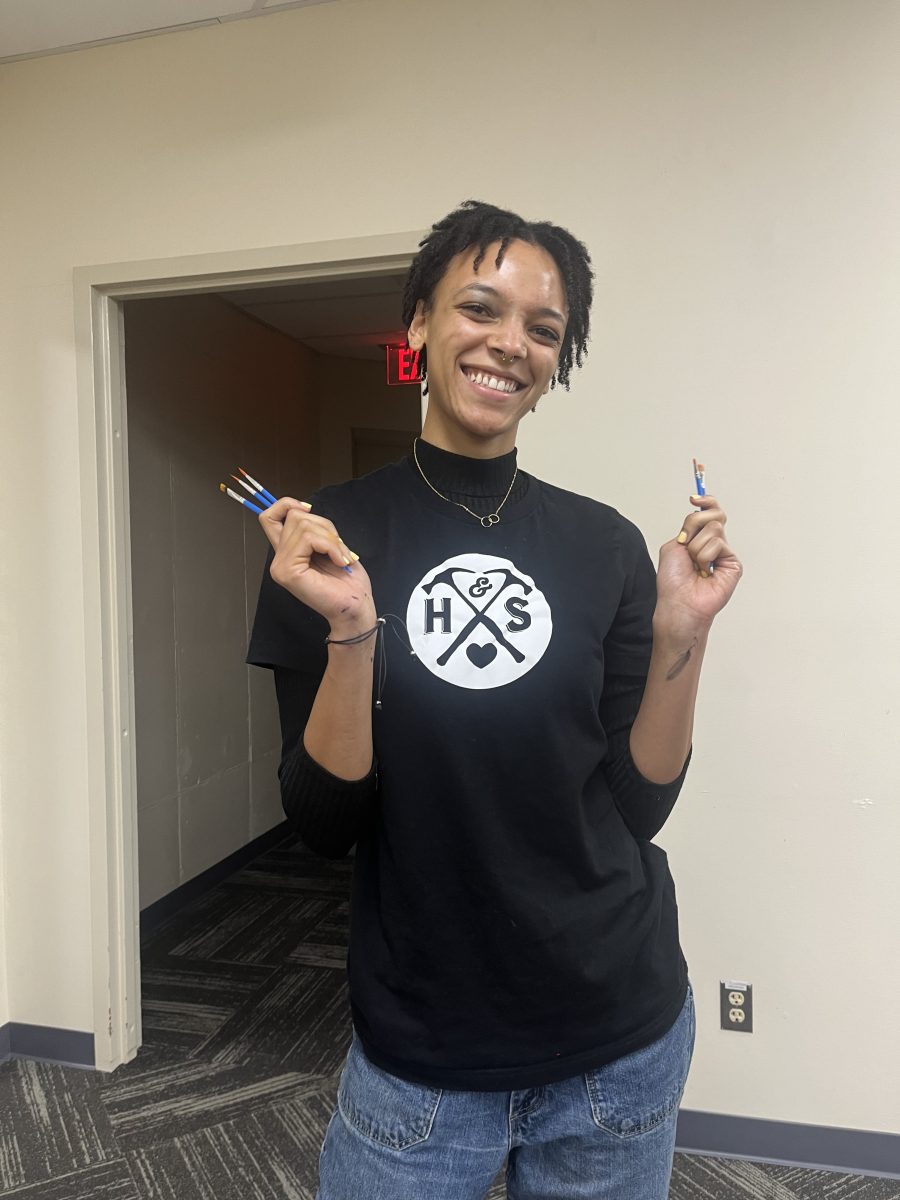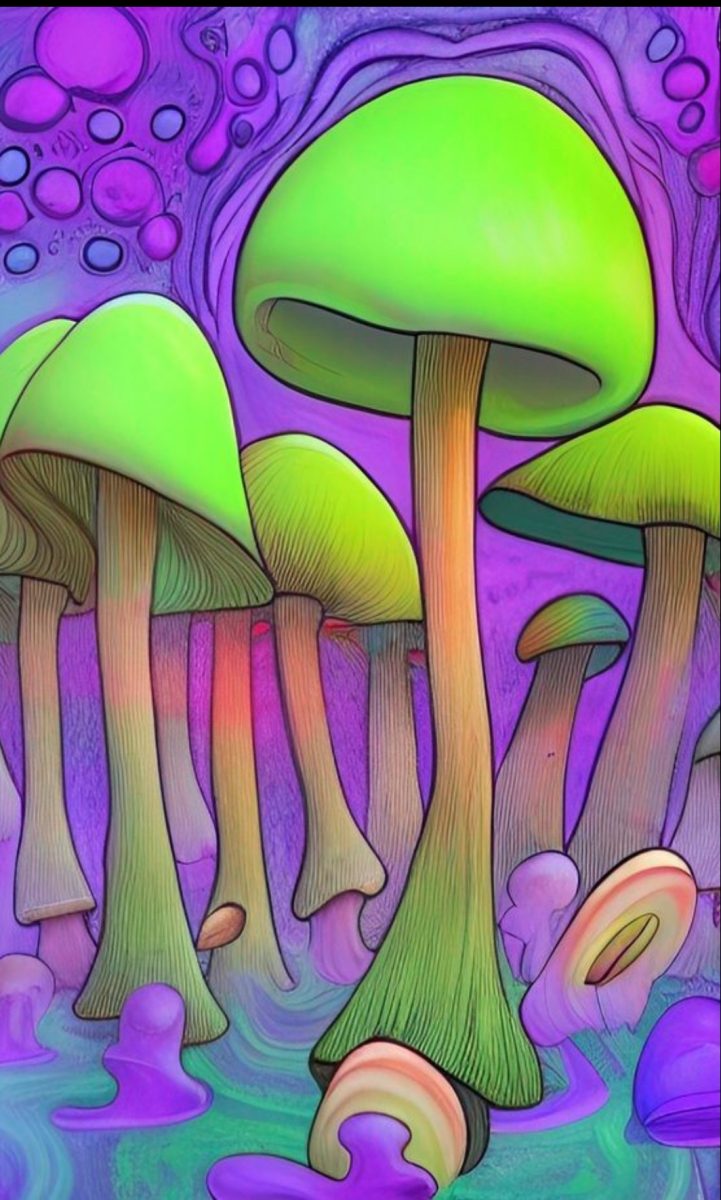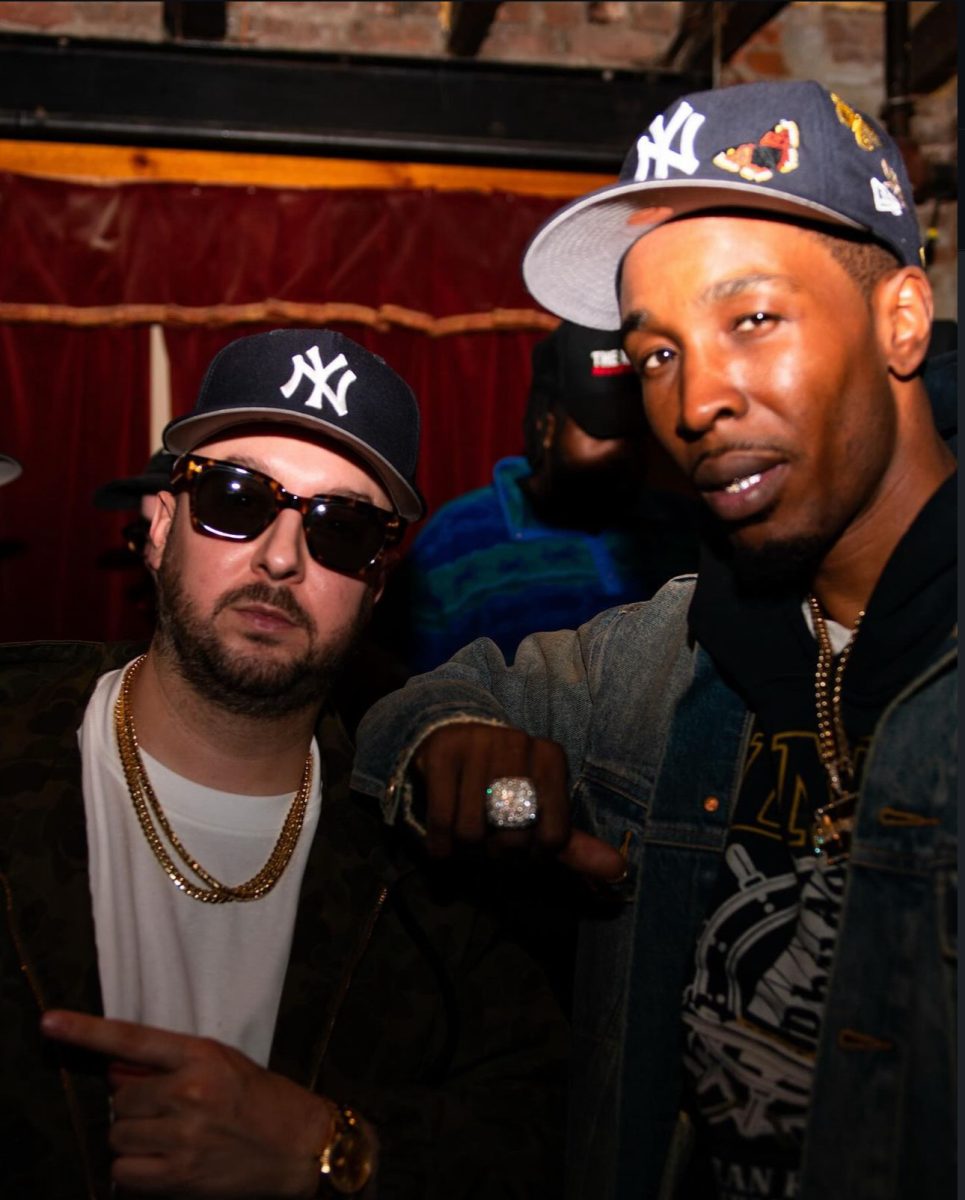Written By Xavier Serrano
Many lay sickly and ill, both physically and mentally with doctors, psychologists, and other respected officials searching for solutions to improve the mental state of patients worldwide. Depression, eating disorders, anxiety, and other mental illnesses affect 350 million people every day. The landscape for the progression to finding a solution for mental illnesses seemed to have taken a sudden change as psychologists began to consider psilocybin mushrooms as an effective antidepressant to use during PAT ( Psychoactive assisted therapy.) Psilocybin is a naturally occurring substance found in certain species of mushrooms that may have therapeutic potential for treating mental illnesses such as depression, anxiety, and post-traumatic stress disorder ( PTSD). The usage of psilocybin mushrooms can improve one’s mental illness because of its unorthodox properties that have a neurological tie to the mind.
Psychologists believe that the properties that psilocybin mushrooms contain may be the next big step in clinical use to help the mentally ill. Despite the great reception the compound receives, there is not enough information that is known about psilocybin mushrooms to determine how or why it is useful for clinical use. Case studies and experiments are done with these mushrooms to see whether or not the properties will affect the user’s mind. A randomized controlled trial was done by a team of researchers from both Johns Hopkins and New York University. The study aimed to see psilocybin’s efficiency in treating cancer patients with high anxiety and depression.
The results from the trial came back with a majority of the patients who took part experiencing a reluctant change in their anxiety as they had an overall uplifted attitude. The data from the study will be useful for future research and development of the neurological link between psilocybin and the brain.
Despite still being in the infant stages of understanding the benefits of engaging with psilocybin mushrooms, Some doctors and psychologists strongly encourage the use of the compound due to the data that was found in past trials as the psychedelic acted as the independent variable. The participants noticed a sudden change in their behavior, thoughts, and overall mood. Psilocybin reemerged from its indigenous contexts and now serves as a healer for those who combat the mental baggage that is mental illness. The medicinal use of psilocybin mushrooms proliferated in mainstream North American and European culture in recent years. Catrin Nye explores the practice of microdosing LSD, which involves taking very small amounts of the drug regularly. The article examines the experiences and motivations of individuals who engage in this practice, as well as the potential benefits and risks associated with it. Nye interviews several microdosers who claim that the practice has helped them with various issues, such as anxiety, depression, and creativity. However, she also highlights the lack of scientific evidence supporting the efficacy and safety of microdosing, as well as the legal risks associated with possessing and using LSD. Overall, the article provides an informative and balanced overview of this controversial and little-understood practice.
“Psilocybin and Mental Healthn’t Lose Control” is an opinion article by Robin Carhart-Harris and David Nutt that discusses the potential risks and benefits of psilocybin for mental health treatment. The authors argue that while psilocybin has shown promise in treating certain mental health conditions, such as depression and anxiety, there is a need for caution and careful regulation to prevent harm. They call for more research to better understand the potential long-term effects of psilocybin use, as well as clear guidelines for its use in clinical settings.
“Magic Mushrooms – an Exploratory Look at How Mental Health Professionals Feel and Think About Psilocybin” is a study by Annekatrin Lorenz, Eva Baumgartner, and Lisa Uebelacker that examines the attitudes and perceptions of mental health professionals toward psilocybin. The study found that while many professionals were hesitant to use psilocybin due to legal and ethical concerns, there was also a growing interest in exploring its potential therapeutic benefits. The study suggests that more education and training are needed to prepare mental health professionals for the potential future use of psilocybin in clinical settings.
The study “Microdosing Psychedelics: personality, Mental Health, and Creativity Differences in Microdosers” by Polito and Stevenson examines the neurological link between psychedelics and the brain. Polito and Stevenson conducted a study tosee if the psychedelics would affect the user’s mind. The trial contained two sets of participants; a group of people who engaged in the use of psychedelics as well as a control group of non-users. Both responses generated from both groups were compared and assessed. The study found that microdoses scored higher in measures of creativity, openness to the experience as well as an uplifted mood. In terms of stress, the microdosers experienced lower stress levels compared to the control group. However, it was noted that microdosers had an increased impulsivity and distractibility which could indicate the possible cons of microdosing. Similarly, Basky also found that the clinical use of psilocybin mushrooms has reduced anxiety and or depression for the user. Basky backs up his claims by discussing the similarities that cannabis and psilocybin have in terms of their medical use and benefits. Basky made the comparison by explaining how common it is to practice the medicinal usage of microdosing on psilocybin mushrooms. As cannabis has healing properties, psilocybin mushrooms contain mind-healing properties that researchers are trying to understand.
A study conducted by a multitude of professionals in the psychiatric field was done to see what neurological changes the brain underwent when in contact with psilocybin. Similar to Polito and Stevenson, the data gathered from the study concluded that the microdosers scored higher on measurements of openness to experience and well-being. Still, nothing had changed significantly in terms of psychoticism and neuroticism.
Psilocybin mushrooms have left researchers stumped as they continue to encounter limitations when finding the medicinal properties of psilocybin mushrooms. In my research, I stumbled upon a few sources that explained in a deeper context how the psychedelic impacts the user’s mind. As the user engages with the psychedelic, the serotonin receptors are activated, allowing for behavioral, psychological, and physiological effects to occur when the substance is in full effect. Kuypers displays a great understanding of psychedelics as she goes on in detail to describe different cycles the microdosers use to maintain the same mental effect and to see if there are any permanent changes from microdosing. One effective way of microdosing would be daily dosing every day from Monday to Sunday. The users described their days as being more fulfilling and productive with a higher level of enjoyment. With the different methods and studies done with the engagement of psilocybin mushrooms, it would be easy to assume that the fundamentals of what gives the mushrooms their properties would have been found by now but that is far from the truth.
Researching the clinical use of psilocybin faces several limitations due to the legal classification of the substance as a Schedule I drug, which imposes significant regulatory barriers. This restricts access to psilocybin and makes it difficult for researchers to obtain the necessary approvals and funding for clinical studies. However, psilocybin clinical trials have typically used small sample sizes, which may limit the generalizability of the results. Additionally, placebo control groups may be difficult to implement, as the psychedelic effects of psilocybin are difficult to disguise.
In totality, the long-term effects of psilocybin use on mental and physical health are not fully understood, and there is a risk of adverse effects. Finally, due to psilocybin’s psychoactive properties, participants may experience unexpected psychological reactions during the study, which can make the study difficult to manage.
Despite the limitations, there is still a wide variety of possibilities to determine the reason why magic mushrooms affect the brain the way that it does. With its ability to nullify the effects of depression and other mental illnesses, psychoactive therapists have begun incorporating microdosing psilocybin in assisted therapy to see if there are any significant changes in the user’s behavior and mood. A study done by Mier in 2023 showcased that 62% of psychotherapists were open to the idea of psilocybin-assisted therapy if it became legalized and regulated. Scientific evidence, the patient’s preference as well as effectiveness were the main factors that influenced the decision.
The participants’ willingness to try a new method of assisted therapy, allowed for research to be done on how the users respond to the neurological link the mushrooms have to the brain. It is noted that psilocybin possesses antidepressant effects as well as properties that may alleviate symptoms of anxiety and forms of depression in tandem with other mental illnesses. Microdosing has been shown to not only have healing properties but can also increase brain neuroplasticity or the brain’s ability to reorganize and form new neural connections. In addition to this, psilocybin has also helped individuals find a sense of importance and bring a new perspective on one’s feelings.
Psychedelic mushrooms have been used for centuries as they not only bring clinical usage but also work as an asset to get closer to one’s spiritual self. The exact reason for this spiritual connection is not fully understood, but it is thought to be related to the effect of psilocybin on the brain. Psilocybin has been shown to activate the serotonin 2A receptor in the brain, which is involved in the regulation of mood and perception. This activation can lead to altered states of consciousness, which may facilitate spiritual experiences.
Studies are conducted frequently to determine a reason why psilocybin mushrooms affect the brain the way it does. Not much can be determined due to the large elephant in the room which is a lack of understanding as well as insufficient ways to determine what the mushroom does to the user. Although the stages of development may be early, magic mushrooms are looked at as the next big thing in the clinical field in hopes that they will improve the clinically depressed as well as the anxious. The methods carried out to perform these studies take extensive time which may also be a reason as to why the research on psilocybin may be in its infant stages, nonetheless, the research carried out will only improve the landscape of psychiatric treatment for mental illness.
With psychedelics peaking the interest of researchers around the globe, it would be safe to assume that in the next few years, we will be given prescriptions from our doctors for microdosing magic mushrooms. The natural substance carries healing properties that researchers are so desperately trying to understand. From what I’ve gathered, it would be safe to say that psilocybin mushrooms do have the potential to heal the mentally ill and improve their lives. However, not everyone may be receptive to the assisted psychoactive therapy due to how the user would react to the substance. We all share different experiences when discussing performance enhancers.
In conclusion, psilocybin mushrooms have shown potential as a treatment for various mental health conditions. Studies have demonstrated their effectiveness in reducing symptoms of depression, anxiety, and addiction. The psychoactive compound that is psilocybin affects the brain’s neural network. This allows for improvement in overall mood and cognition. However, there are still some concerns with the long-term effects of psilocybin use as well as the limitations given by the fungi, we are still unsure of how to research its potential risks and benefits. The realm of psychedelics is a world of uncertainty that leaves a lot of questions unanswered. Overall, the findings indicate that there may be a promising avenue for improving mental health outcomes.






















